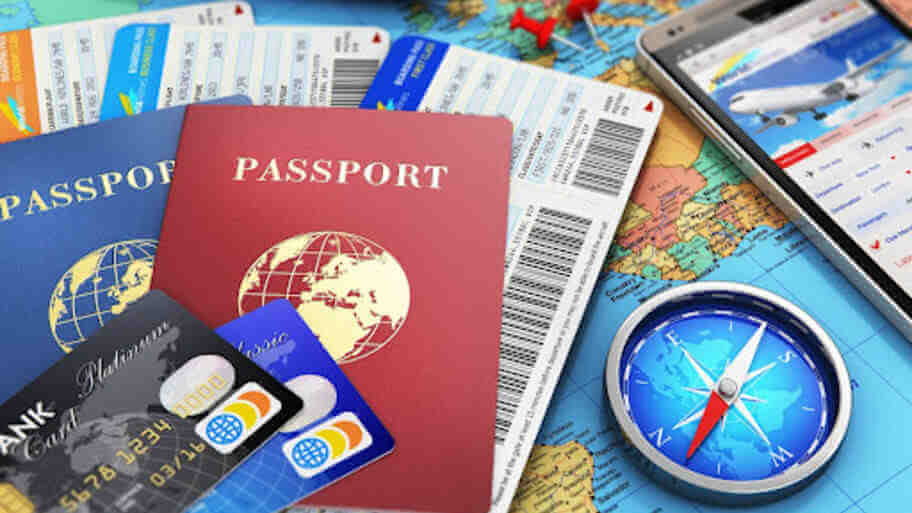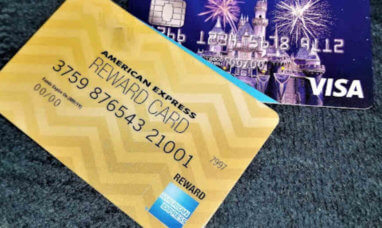Travel rewards cards are one of the best ways to reduce your travel costs, whether it’s for a trip to visit family in another city or flying to a luxurious destination. Whether you’re earning airline miles or hotel points, all travel rewards cards have the same goal of making your future travel more affordable.
There are other ways you can earn miles than using a rewards credit card. Indeed, you can even earn airline miles by filling out surveys. But you will earn miles much slower than with a rewards credit card, which makes it much more valuable in the long run.
However, many travel rewards cards come with annual fees. Certain credit cards have annual fees of more than $500. So, you might ask yourself if travel credit cards are worth it.
The short answer to this question: it depends.
When Are Travel Rewards Cards Worth it?
Travel rewards cards are worth it if they save you more than they cost you. The amount of money you pay for them, including rewards cards with initial bonus offers, can determine whether the card is worth the cost.
There are two basic types of travel rewards cards. General travel rewards cards allow you to use your rewards for travel or cash back. If you don’t travel often, those cards are still a good choice, as you can choose the type of reward you’ll receive.
The other type of travel rewards cards are co-branded rewards cards issued by an airline or hotel chain. If you typically use a particular airline or hotel chain, this makes more sense. In addition to the basic rewards, you will receive additional benefits, such as members-only offers, free upgrades or free bag-check.
Generally speaking, to get the best rewards credit cards, you need to have good or excellent credit. With the best cards, you could save over $2,000 during the first two years of use after deducting annual fees.
To determine whether or not a rewards credit card is worth it, you need to weigh the value of the rewards against the cost of the card. If the credit card has no annual fee and you pay the entire bill every month, then typically it’s worth it.
Rewards cards of all kinds have higher interest rates than traditional credit cards. If you don’t pay your balance in full each month, then you shouldn’t consider getting a rewards card. The interest on these specific cards can destroy the value of these rewards.
Consider whether you prefer to earn bonuses in the form of miles or points. If you’re loyal to a particular airline brand, for example, it might make sense to choose a co-branded airline rewards card that offers a hefty mileage bonus.
Whichever travel rewards card you choose, make sure you understand how you can earn rewards most efficiently. One of the fastest ways to earn credit card rewards is through sign-up bonuses. Most of the best rewards cards come with sign-up bonuses that you can get for meeting a minimum spend requirement in the first three months. Those sign-up bonuses can be worth several hundred dollars, enough to cover your annual card fee for an extended period of time. These rewards can be earned quite easily and you can get them for using money you had already planned to spend.
However, cards with annual fees will generally offer you the best rewards and the biggest sign-up bonuses.
Rewards credit cards typically have annual fees of $50 to $100. With premium rewards cards, fees range from $200 to $550.
The advantage of travel rewards cards is that they often come with benefits, statement credits, and travel protections, which can offset annual fees.
For instance, the Chase Sapphire Reserve Credit Card and the Amex Platinum Card offer a variety of travel benefits, including access to airport lounges and credit for travel expenses. With those cards, you need to weigh the fees versus the benefits to make sure you get what you pay for.
You should keep your expectations realistic when considering a travel rewards credit card. You should consider how much it will cost you, and what benefits you would actually use.
Some of the best rewards of travel rewards cards are that they allow you to earn multiple points or miles per dollar in various spending categories, such as travel, groceries, gas, dining, and entertainment.
One thing to consider is that if you have multiple cards, it can be difficult to know which card will earn you the most points at which merchants.
With the variety of credit cards and the bonus opportunities they offer, you should be earning several points per dollar on almost every purchase. Failure to do so is essentially leaving points, and therefore huge potential value, on the table, so make sure you’re diligent in collecting points.
It doesn’t make sense to spend money on things you wouldn’t otherwise buy to reach these thresholds, but you should maximize the bonuses offered by your credit card if they are within your normal spending.
When Travel Rewards Cards Aren’t Worth It
Travel rewards cards are generally not worth it if you don’t fly or go to hotels a lot because almost all travel rewards cards tend to focus on airlines or hotels.
However, if you use Airbnb to rent apartments then a travel rewards card may still be worth it. Indeed, Airbnb is an eligible reward for most travel credit cards which allow you to pay for any travel-related purchases that are charged to your card with points.
In addition, many premium travel cards come with extended travel insurance packages. If coverage doesn’t apply to you, consider other types of credit cards.
Finally, travel rewards cards aren’t worth it either if you’re traveling for business but you don’t have to pay the expenses. You get rewards when you pay. So if your business is paying on your behalf, you should consider getting another type of card, as most premium travel cards have fees of $100 or more per year.
Do You Earn Miles on Reward Flights?
When you redeem miles to purchase your ticket, you do not earn redeemable miles for the flight. Award miles are based on the number of dollars you spend on a flight. When you purchase an award ticket, you pay for the flight in miles rather than dollars.
In general, if the airline does not collect revenue for your flight, you will not receive rewards.
Bottom Line
Travel rewards cards can be powerful tools to help you optimize your travel strategy, but only if you take advantage of benefits. You should be getting enough value from your travel credit cards to justify their annual fees. Make sure that you know the terms and conditions of each of your credit cards so you don’t get hit with fees and other penalties, which could erase the value of any points you earn. This way, you’ll reach your travel goals faster and get much more value from your travel rewards cards.
Featured Image: Megapixl








